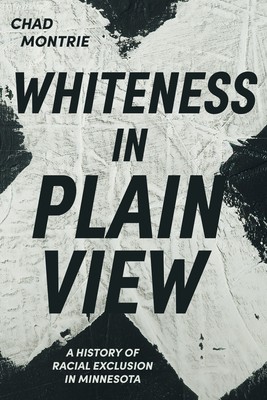
- We will send in 10–14 business days.
- Author: Chad Montrie
- Publisher: Minnesota Historical Society Press
- ISBN-10: 1681342103
- ISBN-13: 9781681342108
- Format: 15.2 x 22.6 x 2.3 cm, minkšti viršeliai
- Language: English
- SAVE -10% with code: EXTRA
Reviews
Description
An examination of White Minnesotans' efforts to exclude African Americans from local communities, jobs, and housing across the state and through the decades. Minnesota is a paradox. Widely seen as a progressive stronghold of the Midwest, the state also has some of the greatest racial disparities in the nation. Those disparities have their roots in Minnesota's earliest days as a territory and in the decades that followed. From enslaved people brought to the territory by military officers to migrants traveling to the North Star State after the Civil War, African Americans have long been present in Minnesota's history. Yet while many came here looking to establish new lives, they were often met with White resistance and attempts to exclude them. Whiteness in Plain View examines the ways White residents across Minnesota acted to intimidate, control, remove, and keep out African Americans over the course of the nineteenth and twentieth centuries. Their methods ranged from anonymous threats, vandalism, and mob violence to restrictive housing covenants, realtor deceit, and mortgage discrimination, and they were aided by local, state, and federal government agencies as well as openly complicit public officials. What they did was not an anomaly or aberration, in some particular place or passing moment, but rather common and continuous. Chapter by chapter, the book shows that Minnesota's overwhelming Whiteness is neither accidental nor incidental, and that racial exclusion's legacy is very much woven into the state's contemporary politics, economy, and culture.- Author: Chad Montrie
- Publisher: Minnesota Historical Society Press
- ISBN-10: 1681342103
- ISBN-13: 9781681342108
- Format: 15.2 x 22.6 x 2.3 cm, minkšti viršeliai
- Language: English English


Reviews